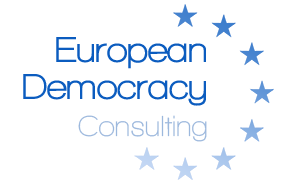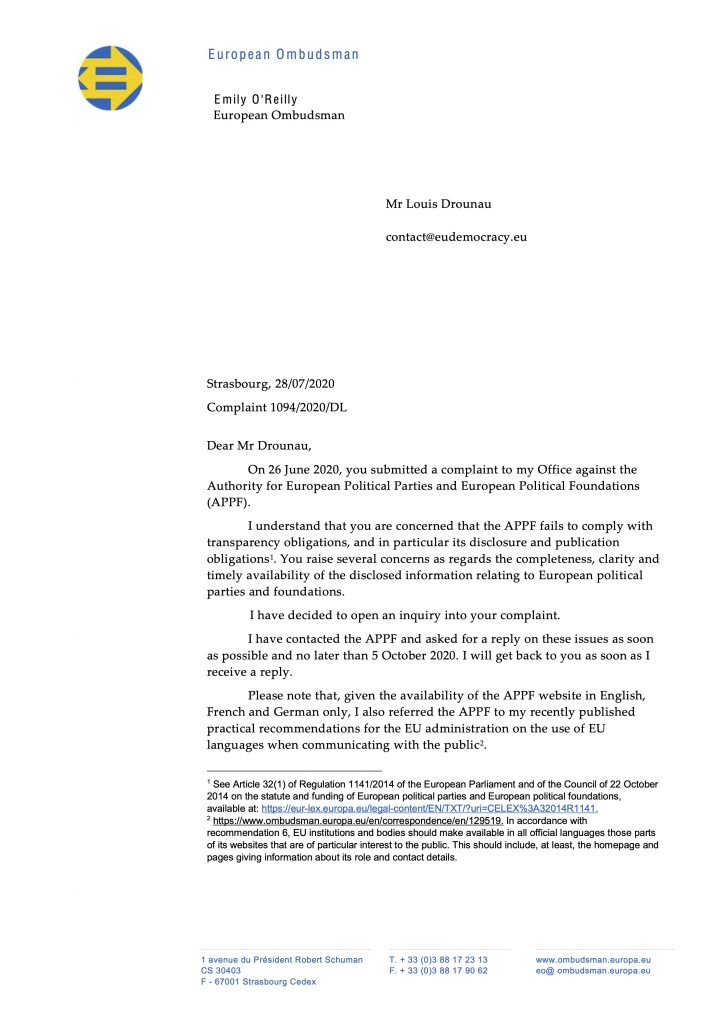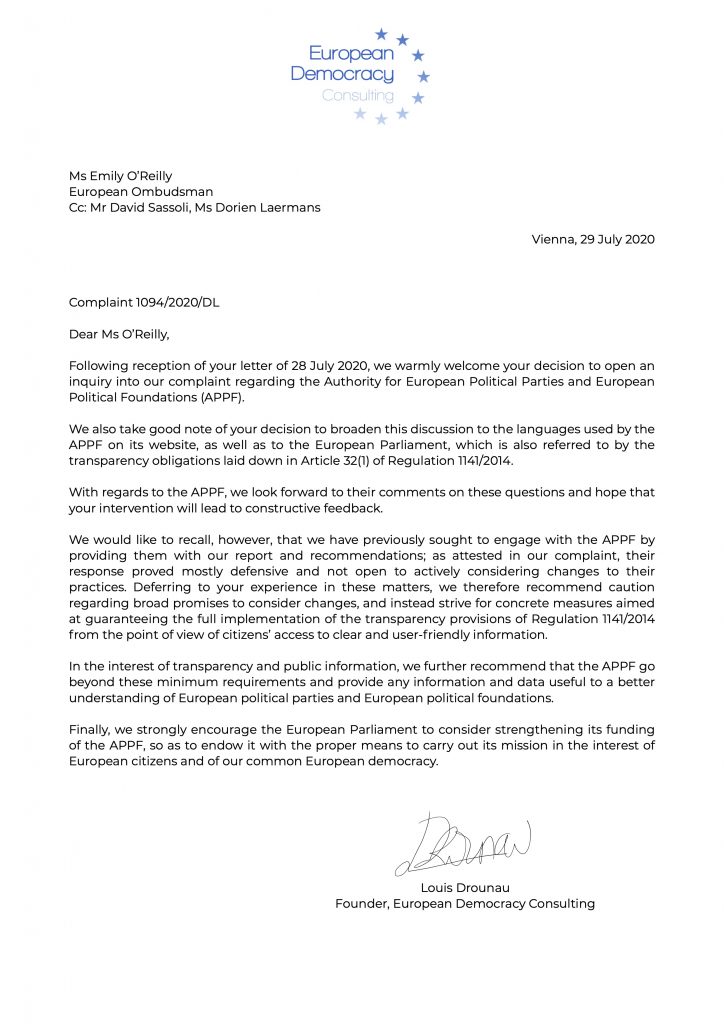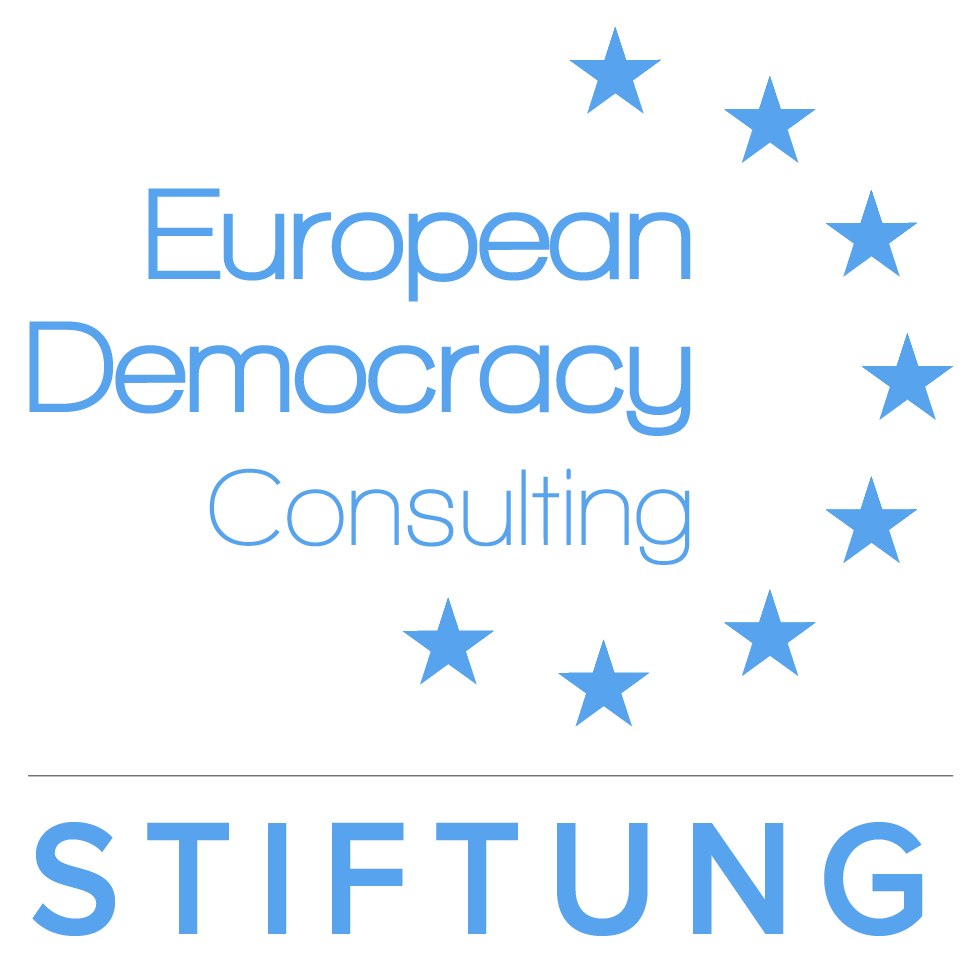Following a complaint by European Democracy Consulting, the European Ombudsman has announced the opening of an inquiry into the handling, by the European parties watchdog, of its transparency obligations. The inquiry is broadened to the APPF’s use of EU languages and to the European Parliament.
On 26 June 2020, European Democracy Consulting lodged an official complaint to the Office of the European Ombudsman in relation to the failure of the Authority for European Political Parties and European Political Foundations (APPF) to implement its transparency requirements under EU Regulation 1141/2014 on the statute and funding of European political parties and European political foundations. For more information about the APPF, read here.
In a letter dated 28 July, European Ombudsman Emily O’Reilly announced her decision to open an inquiry into the APPF’s compliance with its transparency obligations, including the completeness, clarity and timely availability of the disclosed information relating to European political parties and foundations. The Office of the European Ombudsman contacted the APPF for a reply on these issues, to be provided no later than 5 October 2020.
The Ombudsman added that “given the availability of the APPF website in English, French and German only, I also referred the APPF to my recently published practical recommendations for the EU administration on the use of EU languages when communicating with the public.”
Furthermore, given that the transparency obligations laid down in Article 32(1) of Regulation 1141/2014 refer to both the APPF and the Parliament, the Ombudsman decided “to give Parliament the opportunity to provide its comments on the issues raised in this case” and subsequently informed David Sassoli, President of the European Parliament, of the opening of an inquiry into the APPF.
In a reply to the European Ombudsman’s letter, European Democracy Consulting expressed hope that the Ombudsman’s intervention would lead to constructive feedback. We recalled, however, that our own outreach to the APPF had been met with a defensive response, aimed at justifying on-going practices and not open to changes.
We therefore strongly encourage the Office of the European Ombudsman to remain wary of broad promises, and instead strive for concrete measures aimed at guaranteeing the full implementation of the transparency provisions of Regulation 1141/2014 from the point of view of citizens’ access to clear and user-friendly information.
In the interest of transparency and public information, we further recommend that the APPF go beyond its minimum requirements and provide any information and data useful to a better understanding of European political parties and European political foundations. We also encourage the European Parliament to strengthen its funding of the APPF, so as to endow it with the proper means to carry out its mission in the interest of European citizens and of our common European democracy.



